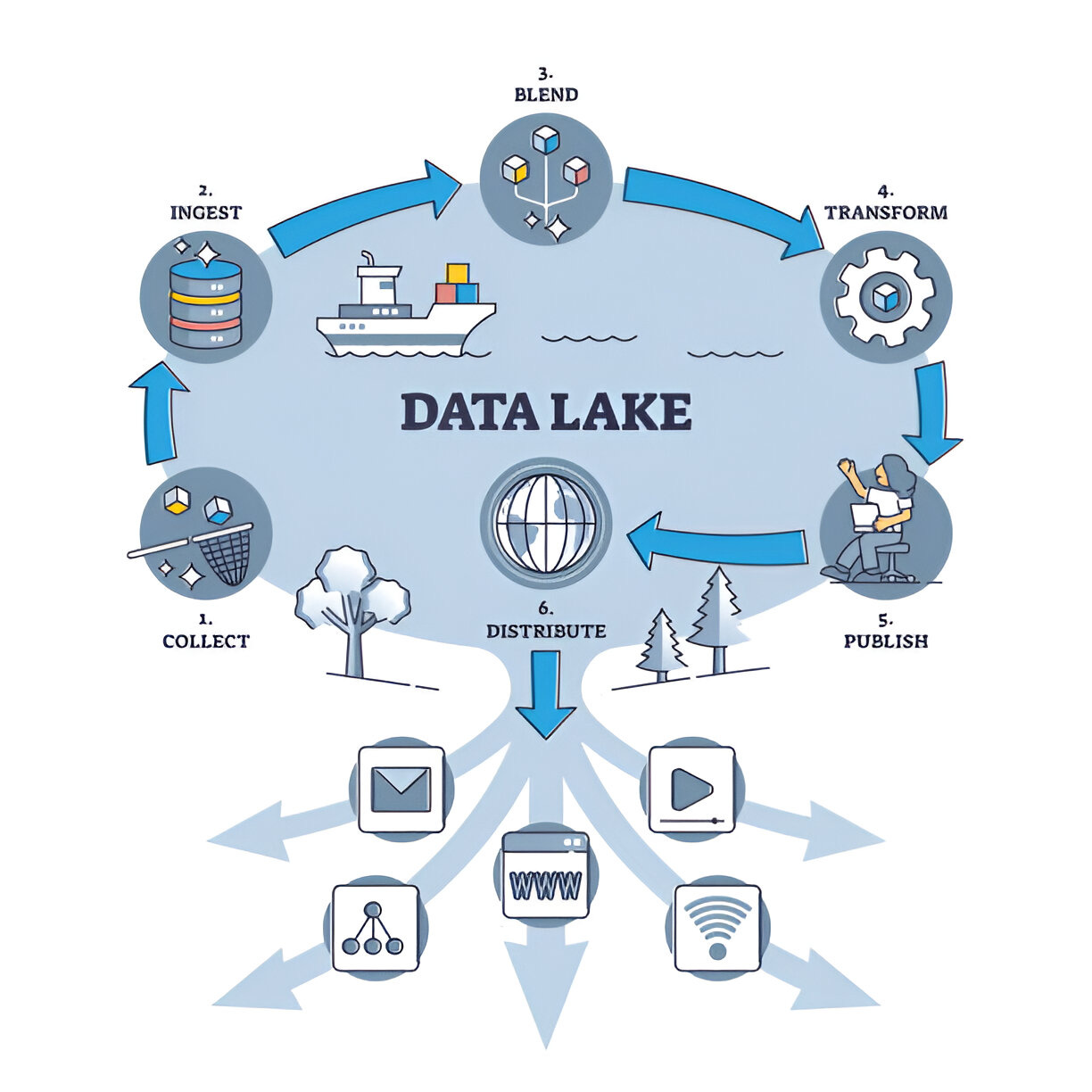A smarter, faster, more profitable way to manage your data
The challenge isn’t just storage—it's making sense of it.
Companies drown in data.
It comes fast and from everywhere—IoT devices, social media, sales systems.
Old data systems can’t keep up.
Data lakes offer a way out.
So, what exactly is a data lake?
A data lake is a big, central place for storing data.
It takes in huge amounts of information, both structured and unstructured.
It keeps it in its raw form.
You don’t have to clean or reshape the data first — you just dump it in.
This saves money because data lakes run on cheaper hardware and skip the costly step of pre-indexing.
When set up right, data lakes give data scientists quick access to fresh, unfiltered information.
In this edition, we’ll explore a McKinsey article I came across and discuss key vocabulary and excerpts.
1. “Needle in a haystack” (idiom)
Meaning:
Something that is extremely difficult or almost impossible to find.
Excerpt:
"Without proper organization, searching for specific data becomes like looking for a needle in a haystack."
Real-World Usage:
"Finding the right data in this outdated system feels like searching for a needle in a haystack."
"Recruiting the perfect candidate without clear requirements is like looking for a needle in a haystack."
2. Traversing (verb)
Meaning:
To move across, through, or over something, often a large or complex space.
Excerpt:
"Traversing a poorly managed data lake takes time and effort, slowing down analysis."
Real-World Usage:
"The team spent hours traversing the massive database to find key insights."
"Hikers faced difficulty traversing the rocky terrain."
3. Harnessing (verb)
Meaning:
To control and use something (often a resource) effectively.
Excerpt :
"Harnessing data lakes requires the right tools and governance structures."
Real-World Usage:
"Companies are harnessing the power of AI to improve customer service."
"Solar panels help in harnessing renewable energy."
4. Used in conjunction (phrase)
Meaning:
Used together with something else to achieve a common goal.
Excerpt:
"Advanced analytics should be used in conjunction with well-structured data lakes for better insights."
Real-World Usage:
"Cloud storage works best when used in conjunction with strong cybersecurity measures."
"Project management tools are often used in conjunction with communication apps."
5. Tried-and-true methods (idiom)
Meaning:
Techniques or approaches that have been proven to work reliably over time.
Excerpt :
"Many companies rely on tried-and-true methods to avoid data chaos."
Real-World Usage:
"Despite new tools, we stick to tried-and-true methods for quality assurance."
"Budgeting with spreadsheets remains a tried-and-true method for many businesses."
6. Rigorous (adjective)
Meaning:
Extremely thorough, careful, and accurate.
Excerpt:
"Rigorous data governance ensures that information remains accurate and accessible."
Real-World Usage:
"The audit process requires rigorous attention to detail."
"Data analysis should follow a rigorous methodology for accurate results."
7. Free rein (idiom)
Meaning:
Complete freedom to act or make decisions without much oversight or restriction.
Excerpt :
"Giving everyone free rein to add data without structure leads to chaos."
Real-World Usage:
"The team was given free rein to experiment with new marketing strategies."
"Without proper guidelines, giving developers free rein can lead to inconsistent results."
Sri





